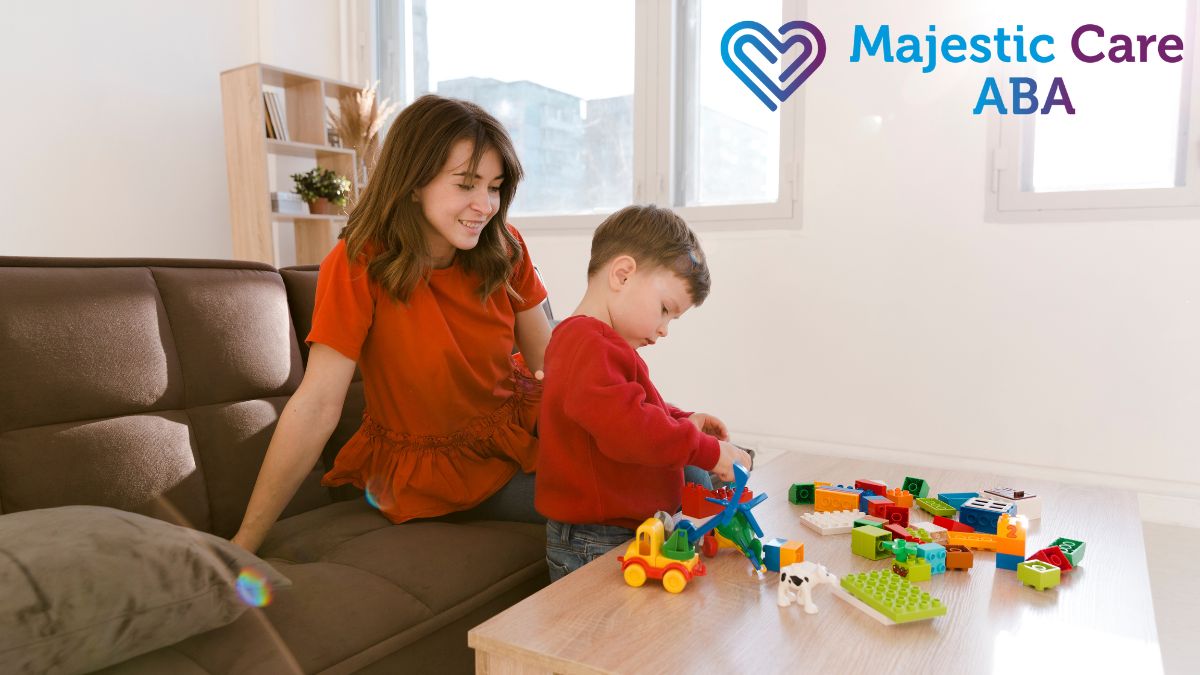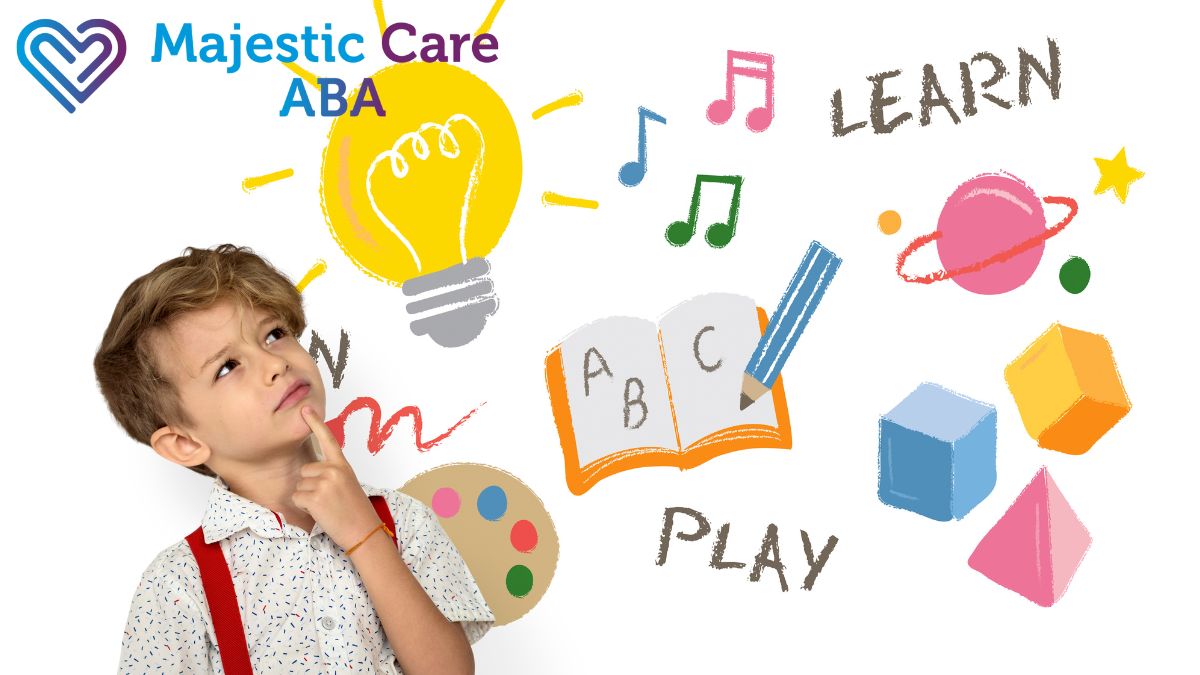Applied Behavior Analysis (ABA) has transformed how children on the autism spectrum learn and develop. Through structured strategies, ABA focuses on increasing positive behaviors using techniques grounded in research. One of the most effective strategies is positive reinforcement for autism, a method where rewarding desired behaviors strengthens their recurrence. By understanding how reinforcement works, families and educators can help children grow, socially interact, and develop daily skills in a motivating, enjoyable way. Curious how ABA reinforcement strategies, autism reward systems, and behavior shaping work in real life? Read on to explore practical techniques, real-world examples, and proven ways to support meaningful behavior improvement.
Reward System Autism: A Concrete Example
Meet Larry, a seven-year-old child on the autism spectrum who struggles with staying seated during group activities. Larry’s ABA therapist decides to use a reward system autism approach to help him develop this skill. Every time Larry remains seated for five minutes, he earns a small token. Once he collects five tokens, he can trade them for a preferred activity, playing with a favorite toy or a short art session.
The process works because it combines ABA reinforcement strategies with tangible reinforcement, teaching behavior autism while creating an immediate link between effort and reward. Over several weeks, Larry progresses to ten-minute intervals, showing measurable autism behavior improvement. Social reinforcement, such as verbal praise from his therapist, further encourages Larry to repeat this behavior across different settings, from therapy sessions to home activities. Structured reward systems like this can effectively increase desirable behavior over time.
Behavior Shaping Autism

Behavior shaping autism is a step-by-step method used in ABA behavior therapy to teach complex skills. Instead of expecting a child to complete a skill perfectly from the start, therapists break it down into smaller, achievable actions, rewarding each step along the way.
Example: Teaching a child to wash hands independently.
- Step 1: Approach the sink – reward with verbal praise.
- Step 2: Turn on the water – provide a small tangible reward.
- Step 3: Use soap and rub hands – reward with token reinforcement.
- Step 4: Rinse and dry hands – reward with access to a preferred activity.
By shaping behavior in small increments, ABA behavior therapy ensures that children experience success consistently. This method can improve skill acquisition rates compared to non-reinforced practice. Behavior shaping autism also emphasizes fading rewards gradually, helping children internalize behaviors and maintain autonomy while reinforcing desired actions in various contexts.
Autism Behavior Improvement

Autism behavior improvement refers to the overall enhancement of social, communication, and daily living skills through consistent reinforcement. Effective ABA reinforcement strategies focus on identifying highly motivating rewards tailored to each child’s preferences.
Key strategies include:
- Token Systems: Children earn tokens for completing tasks, which can later be exchanged for a larger reward. Helps teach delayed gratification and planning.
- Activity-Based Rewards: Preferred activities, like drawing or playtime, serve as incentives for positive actions.
- Social Reinforcement: Verbal praise, clapping, or high-fives that provide immediate acknowledgment of effort.
For example, a child learning to greet peers appropriately in class might receive immediate verbal praise for saying “hello” and a token for participation. Over time, the child learns that greeting others leads to positive outcomes, supporting social skill development. Research suggests that reinforcement-based interventions can improve functional communication skills in children on the autism spectrum by up to 45% over six months (Lovaas, 1987).
Types of ABA Reinforcement Strategies
| Strategy | How It Works | Benefits |
| Tangible Reinforcement | Rewards like toys or stickers after desired behavior | Immediate, visual feedback that strengthens learning |
| Social Reinforcement | Praise, high-fives, attention | Boosts self-esteem and promotes emotional engagement |
| Activity Reinforcement | Access to preferred activities after completing tasks | Connects effort with enjoyable outcomes |
| Token Systems | Earn tokens for behaviors, exchange for rewards | Teaches delayed gratification and tracking progress |
Practical Tips for Implementing ABA Reinforcement Strategies
- Immediate Rewards: Deliver reinforcement right after the desired behavior occurs to strengthen the behavior-reward connection.
- Personalized Reinforcers: Tailor rewards to each child’s interests to increase motivation.
- Consistency: Apply reinforcement consistently across sessions and settings to ensure skills generalize.
- Gradual Fading: Reduce reward frequency gradually to promote independent behavior.
- Visual Aids: Use charts or token boards to help children track their progress and understand expectations.
These approaches ensure children stay motivated while learning important skills. For instance, in a classroom, using token boards for completing tasks can increase engagement and reduce disruptions, fostering a positive learning environment.
Reward System Autism in Daily Life
Creating a reward system for autism doesn’t end in the therapy center. At home or in school, consistent reinforcement fosters generalization. Here’s how it can look:
- Morning Routine: Completing teeth brushing earns a sticker.
- Homework Completion: Finishing an assignment earns extra tablet time.
- Social Interaction: Greeting a sibling appropriately earns verbal praise and a token.
Structured systems like these create predictable and motivating environments. Children learn that their efforts are recognized, which increases repetition of positive behaviors. Over time, as reinforcement is gradually faded, the child internalizes these behaviors, leading to sustained autism behavior improvement.
Combining ABA Behavior Therapy with Reward Systems
Reward systems are most effective when integrated with ABA behavior therapy. Therapists use behavior data to adjust reinforcement types, frequency, and timing. This ensures that rewards remain motivating and relevant as children grow and develop new skills.
For example, a child may initially respond well to tangible rewards but later become more motivated by activity-based rewards or social praise. ABA reinforcement strategies help practitioners identify these shifts and adapt accordingly. This adaptability maximizes engagement and accelerates skill acquisition, ultimately promoting lasting autism behavior improvement.
Frequently Asked Questions (FAQ)
1. How is a “reinforcer” different from a “reward”?
In ABA, a reinforcer is something that, when given after a behavior, makes that behavior more likely to happen again. A reward is any item or praise given after a behavior. If it does not increase the behavior in the future, it is not technically a reinforcer.
2. Can positive reinforcement be overused?
Yes, over-reliance on external rewards, like stickers or treats, can happen. The goal is to transition to natural reinforcers, such as enjoying social praise or achieving a small goal. Effective ABA plans gradually fade reinforcement as skills become routine.
3. What if a child is not motivated by typical rewards?
This is common. ABA therapists perform preference assessments to find unique, motivating items or activities. These might include specific sounds, sensory experiences, or a brief moment of a favorite activity. Motivation drives learning.
4. Does positive reinforcement reduce challenging behaviors?
Indirectly, yes. Instead of punishing unwanted behaviors, ABA strengthens alternative, appropriate actions. For example, a child who screams for attention may be reinforced for raising a hand or using words to ask for it. This approach is called Differential Reinforcement of Alternative behavior (DRA).
5. What are generalized conditioned reinforcers?
These are “all-purpose” rewards that can be traded for lots of things a child likes, such as toys, snacks, or fun activities. They’re useful because they work in many situations and don’t rely on just one type of reward.
Example: A child earns a token for completing a task. Later, they can exchange several tokens for extra playtime, a favorite snack, or a small toy.
Building Positive Behaviors That Last

Using ABA reinforcement strategies and thoughtful reward systems helps children on the autism spectrum develop meaningful behaviors, strengthen social skills, and achieve measurable progress. At Majestic Care ABA, we create structured, positive, and personalized plans that support growth, learning, and success across multiple settings.
Families in North Carolina have observed children participate more actively, develop practical life skills, and use learned behaviors at home, school, or in the community. By tailoring strategies to each child’s unique motivators, progress becomes clear and sustainable.
Our team at Majestic Care ABA partners with you to ensure every approach fits your child’s needs. Reach out today to explore how our ABA programs provide consistent reinforcement while supporting ongoing development and strengthening positive behaviors.












































